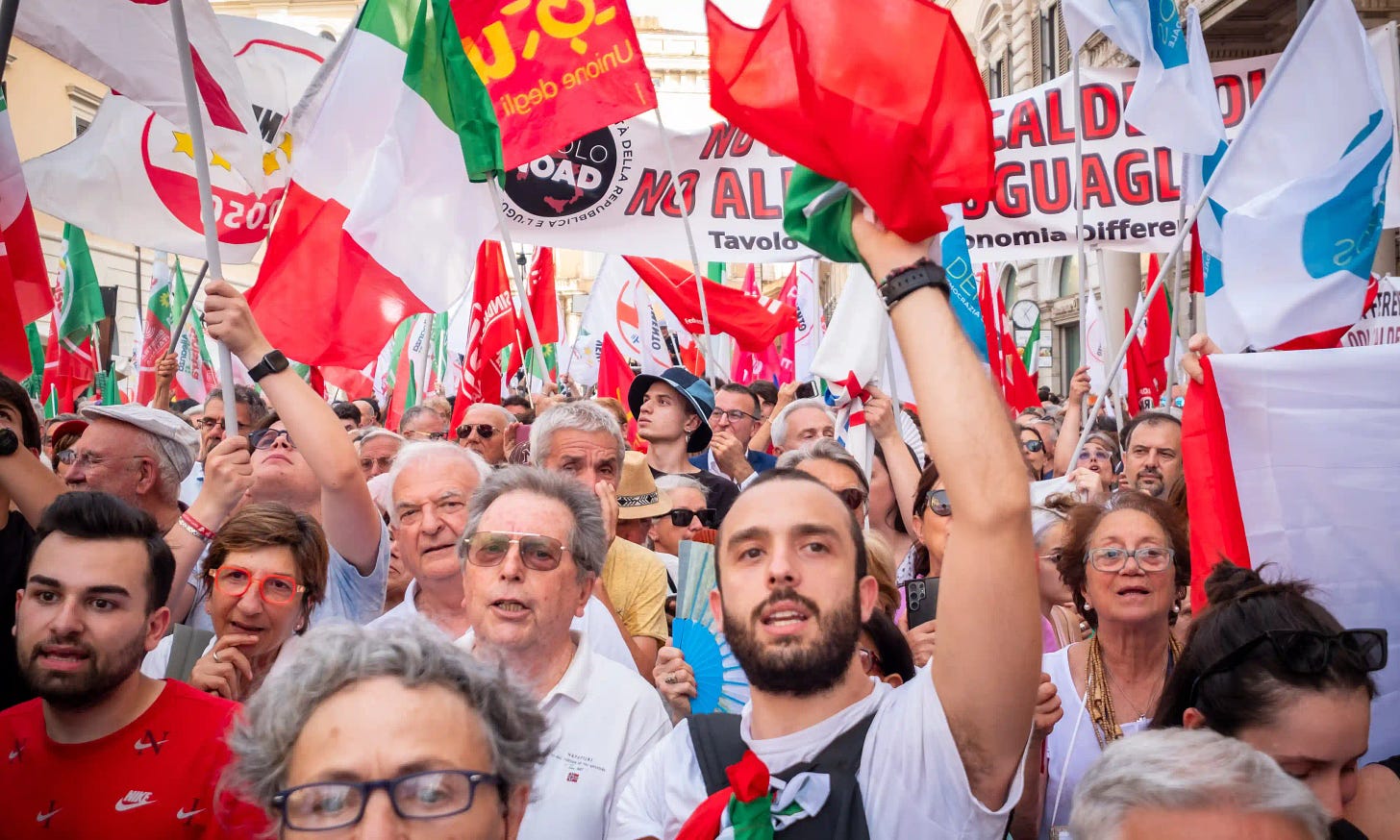Italy’s New Law Undermines Solidarity
Regional Autonomy Law Opens Door to Public Service Commercialization
After securing the most votes in the European Parliament election, Italian Prime Minister Giorgia Meloni achieved another victory in the national parliament. On 19 June, parliamentarians voted in favor of a bill on differentiated autonomy, which devolves decision-making powers on key areas to the regions. The Calderoli law, named after the minister of regional affairs who spearheaded it, is expected to increase existing inequalities between southern and northern Italy. The new legislation will decentralize decision-making on education, health, public services, and culture, among other areas, as well as financing of these areas.
The parliamentary discussion preceding the vote was exceptionally heated, culminating in parliamentarians from far-right Lega and Brothers of Italy physically attacking a member of the Five Stars Movement.
Critics have dubbed the new law the “Split-Italy” law, predicting it will undermine the constitutional principle of solidarity. On the other hand, right-wing parties, especially Matteo Salvini’s Lega, have celebrated the vote’s outcome. Salvini and his allies have long advocated for more regional autonomy by pitting the interests of the northern regions against those of the southern ones, drawing upon stereotypes of the South as a backward, non-contributing part of the country.
The new law technically still foresees minimum standards for public services in all regions. However, the framework means wealthier regions can invest more in these services. For example, Veneto might increase health spending within its borders, while regions like Calabria, lacking financial resources, will be stuck at the state’s minimum level. This disparity could lead to longer waiting lists for patients in Calabria and harsher working conditions for health staff, potentially increasing internal migration to wealthier regions and perpetuating a vicious cycle.
Opposition parties, ranging from the center to the center-left, have announced plans to organize a referendum to counter the law’s implementation. They argue that combating regional inequalities cannot be achieved under differentiated autonomy. Currently, discrepancies in social spending show that southern Italy is under-prioritized in budget allocations. The national average for social services spending is around EUR 130 per person, but in the South, it stands at EUR 66 per person. In contrast, the northeastern regions, whose representatives supported the new law, spend over EUR 180 per person.
Many parties now campaigning against differentiated autonomy previously supported steps towards it. Incremental changes introduced by former governments, including those from the center and center-left, allowed high-income regions to open the doors to the private sector in key areas. The left-wing party Potere al Popolo (PaP) has warned for years that differentiated autonomy not only fractures unity, as recognized by parliamentary opposition, but also increases private sector influence over all aspects of life. Instead of enhancing community participation in resource allocation decisions, the reform limits popular involvement, PaP has stated.
“Our no to differentiated autonomy is a social no, emphasizing wealth redistribution and the involvement of social movements in the battle against [differentiated] autonomy,” PaP declared during the mobilization against the reform.
Parallel to the devolution reform, Meloni is also advancing a bill allowing for the direct election of the prime minister. This proposal has sparked fears that, if passed, it could concentrate excessive power in one office, paving the way to authoritarianism.





